I just got back from a trip to Israel. I was invited by the MEITAL 2019 conference and the Kibbutzim College of Education, Technology and the Arts. MEITAL is an organization of higher education institutions in Israel focusing on understanding and responding to local and global trends shaping the future of education. The conference was held in Yitzhak Rabin Center in Tel Aviv on the 9th of July.
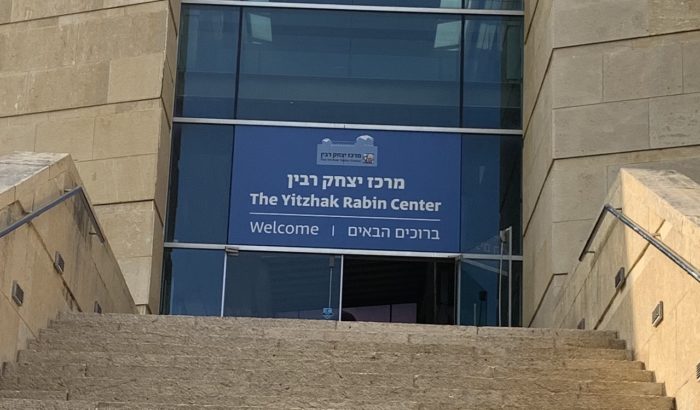

I bookended the conference giving the starting keynote, and then participating in a panel at the end of the day. My keynote was titled Beyond TPACK: Designing Technology and Education—From Artifacts to Culture. This is how it was described in the program.
It often seems as if the decades of research, development and investment in educational technology have very limited effect in actual classrooms. A promising and prominent strand of research focuses on technology integration and teacher education. Within this strand, the well-known TPACK framework describes the type of knowledge teachers need to design effective uses of technologies. However, despite its prevalence, TPACK has not led to wide-spread change in educational technology use. In this talk, I argue this is because we have not paid enough attention to how educational technology works at the level of systems and culture. In this context, I present a new framework, the Five Discourses of Design, that can help us learn from the past and possibly carve a new path for the future. I conclude with examples of how the framework is being applied in the work we are doing at the Teachers College and with suggestions for future research and practice.

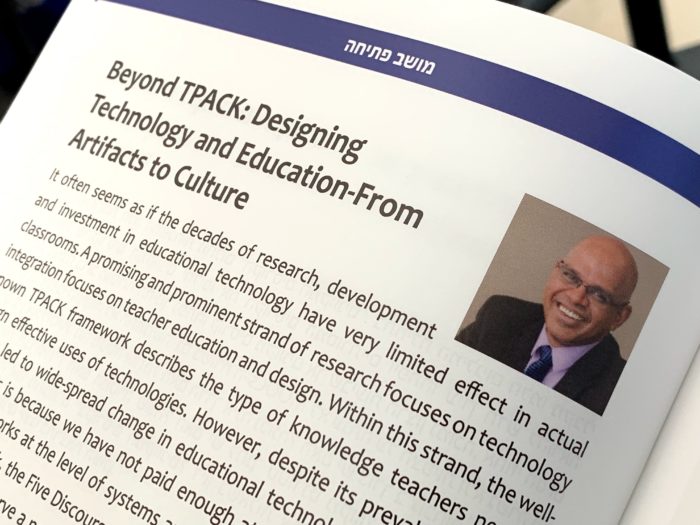
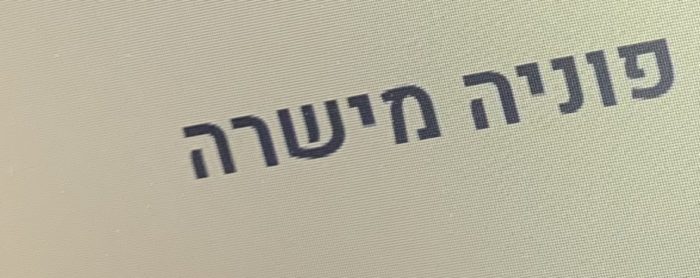
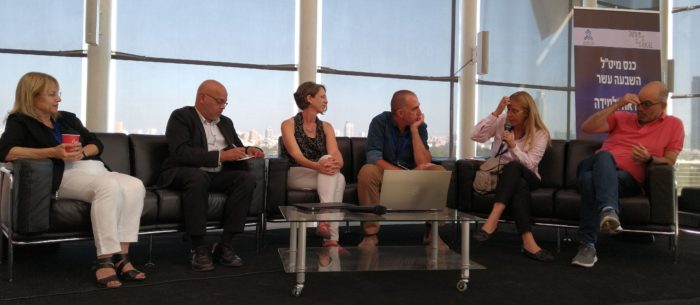
The next day I led a workshop with approximately 60 faculty participants, from the Kibbutzim College and other universities, around the topic of Re-Designing Education (description below).
Educational organizations are complex social systems with multiple stakeholders involved in defining their goals, functions and processes. These systems face challenges that are fraught with ambiguity and complexity and vary based on their specific contexts. We use an intentional, collaborative, open-ended design process that starts with learning deeply about what matters to stakeholders. This new form of professional learning for educators and leaders is an iterative process that gives control of change and innovation to those closest to the challenges. We value action guided by empathy, diverse perspectives and experimentation. This workshop will introduce participants to the design approach of the Office of Scholarship and Innovation, Mary Lou Fulton Teachers College at Arizona State University. We will then break into teams and conduct a series of rapid design thinking exercises, which will help us identify and articulate key challenges that we face in our institutions. These will be followed by brainstorming exercises aimed at generating initial ideas for possible solutions to these challenges. We will conclude with a reflective discussion on the process and its outcomes.
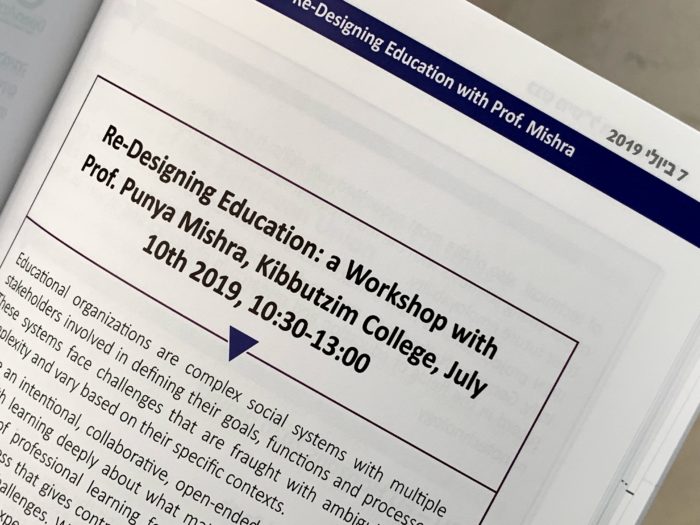
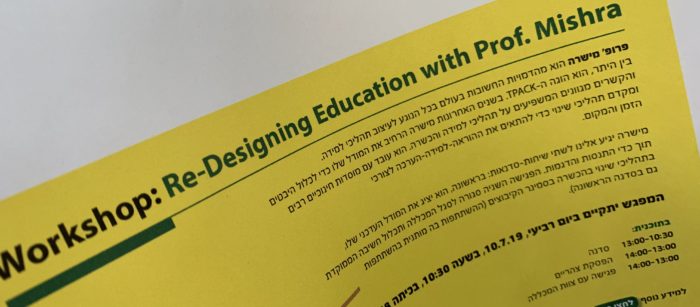
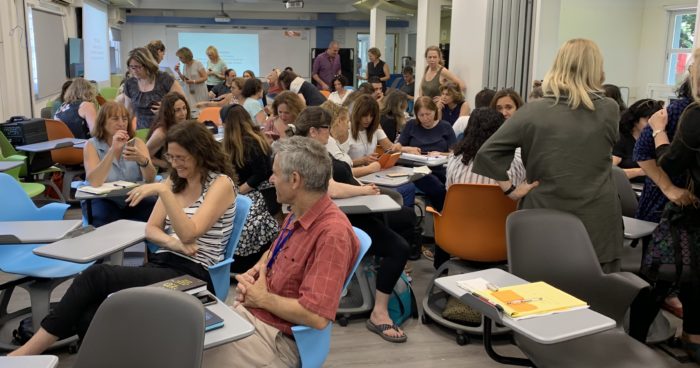
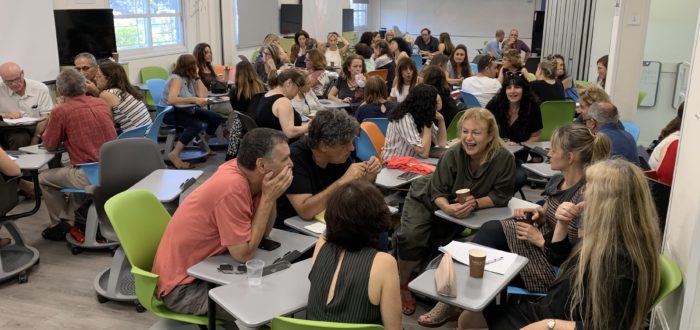
After the workshop I had an opportunity to visit the Empathy Museum at the College and speak with professor Vered Ginzberg, who had come up with the idea. Among other things, I was introduced to Aravrit, a special font designed by Liron Lavi Turkenich. Aravrit combines Arabic and Hebrew into script that is legible in both languages! (See images and video below). I also had a chance to meet with the faculty and leadership at the Kibbutzim College in a wide-ranging discussion about the challenges facing teacher education in particular and higher education broadly, at this time.

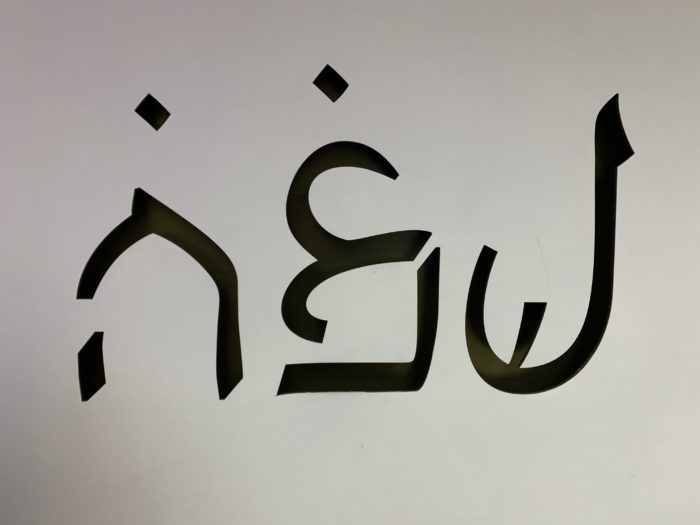
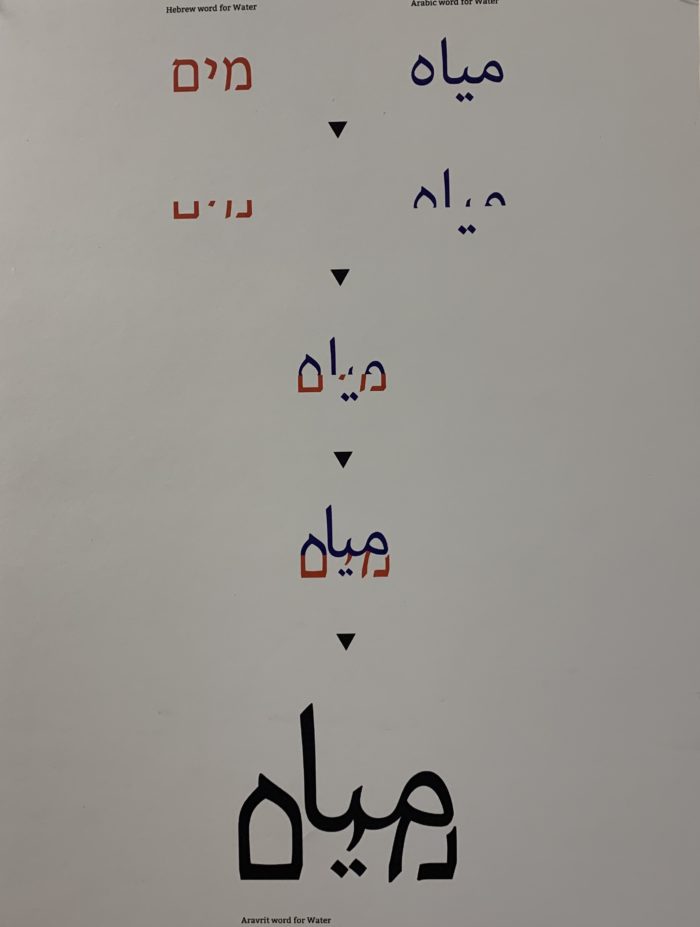
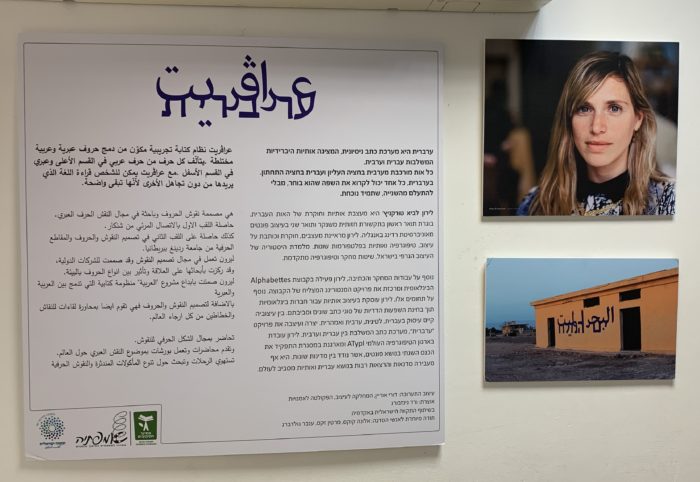
I need to thank a lot of people who made this trip extra special. There are too many names to include but a special shout out to Dr. Miri Shonfeld (and her husband Yoshi), Eli Shmueli (conference organizer) and Dr. Yishay Mor.
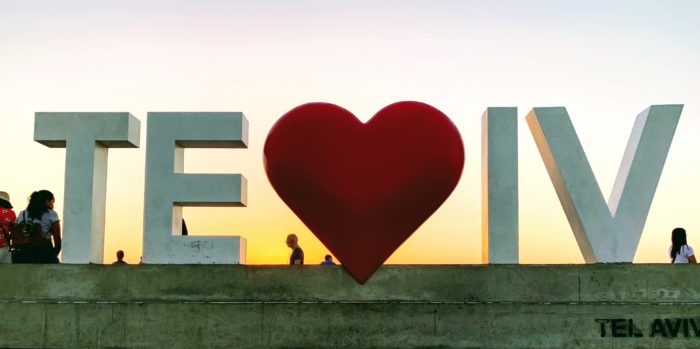
Finally, a video of my keynote – synced to the audio of what I said. Apologies in advance for the audio quality.


0 Comments